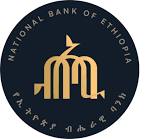
The Governor of the National Bank of Ethiopia (NBE), Mamo Mihretu, announced that the government would continue to take firm legal measures against illegal entities operating in the parallel foreign exchange market, particularly those whose activities distort normal market operations.
The governor stated that the names of organizations engaged in illegal foreign exchange dealings would be made public when necessary. He emphasized that the bank was committed to enforcing the law to protect the integrity of Ethiopia’s financial system and ensure price stability.
As part of its ongoing strategy, the National Bank has decided to maintain its regular foreign exchange auctions. This decision follows a threefold increase in Ethiopia’s foreign exchange reserves last year, continued growth in the new fiscal period, and foreign currency inflows and earnings that exceeded expectations. The auction system, which allocates part of the country’s foreign currency earnings to commercial banks, is intended to stabilize both exchange rates and domestic prices.
During a USD 150 million auction held this week, all 28 participating banks were able to obtain the foreign exchange they required, with one USD sold at Birr 138. Banks are now expected to build on this allocation by increasing their own foreign currency revenues and ensuring a steady supply to their customers. The business community and private sector have been encouraged to make use of the foreign exchange available through legal banking channels.
While most businesses are complying with legal procedures, the National Bank raised concerns about those still participating in the parallel foreign exchange market. The Bank warned that continued involvement in these illegal practices may result in legal consequences, including asset confiscation. Those engaged in such activities were urged to return to the formal market.
In addition to domestic action, the Bank reaffirmed its intent to pursue illegal forex operators abroad. It specifically cited organizations based in Dubai, United Arab Emirates, which are allegedly attempting to expand the parallel market and manipulate exchange rates. The Bank announced that it will take necessary measures and may disclose the names of these organizations to the public.
Addressing public concerns, Mamo Mihretu also dismissed claims that the International Monetary Fund (IMF) has issued a negative assessment of Ethiopia’s economy. He related that the IMF’s reports reflected a generally positive outlook, acknowledging the progress made through foreign exchange reform and broader economic measures.
Source: Ethiopian News Agency




